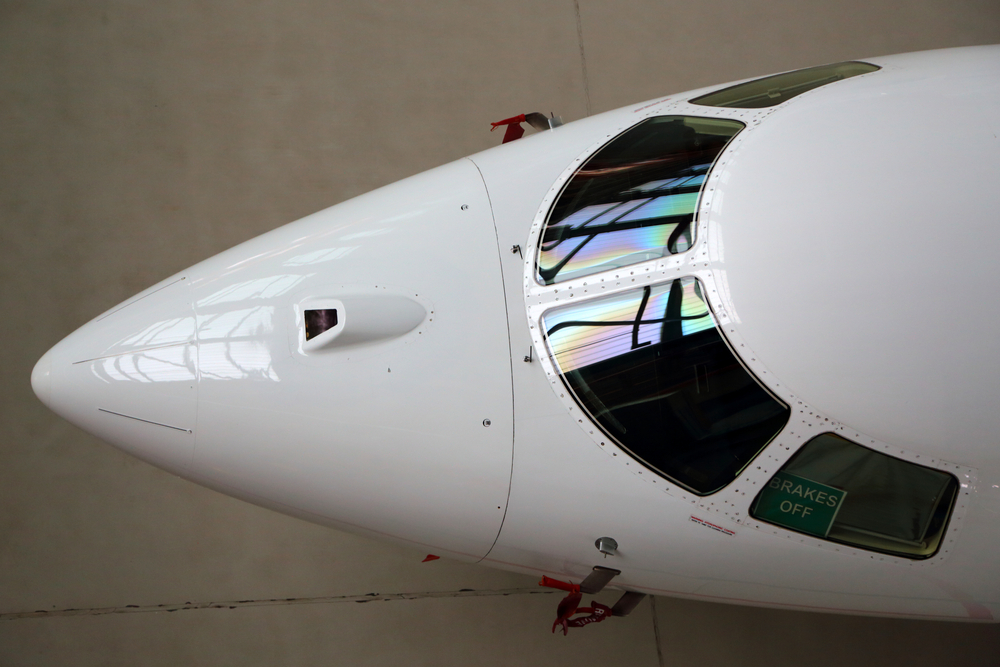The aviation industry has always been one of the most thrilling and rewarding sectors to work in, offering a wide variety of career opportunities. From pilots and aircraft engineers to cabin crew, air traffic controllers, and sales managers, the number of roles is endless. But let’s be real: we all know that salary plays a big role in choosing a career path. So, if you are curious about which aviation jobs will bring in the big bucks in 2025, you have come to the right place!
In this article, we will explore the factors that influence aviation professionals’ salaries and rank the top 10 highest-paying aviation jobs worldwide in 2025.
Table of Contents
What are the key factors that impact aviation professionals’ salaries?
Aviation professionals are some of the highest-paid workers in the world, and it is no coincidence! So, what makes their salaries soar? Several factors come into play when determining how much these experts take home.
Let’s start with experience. The more time you spend in the cockpit, working on aircraft, or managing air traffic, the higher your paycheck is likely to be. But here is a twist: location plays a massive role too. For instance, pilots flying in the Middle East can earn far more than those in smaller European markets. Why? The demand for pilots, cost of living, and the perks offered by companies all factor in.
What about specialization? This is where things get really interesting. Professionals who specialize in specific roles (like type-rated pilots or engineers with deep expertise in particular systems) can command higher salaries. And do not forget employer type! Whether you are working for a major airline, a government agency, or a private corporate jet operator, your paycheck can vary greatly depending on where you are employed.
Aviation professionals stand out because their jobs are important to global safety and security. The aviation industry is one of the most regulated and high-stakes sectors out there. Professionals must adhere to global standards, spend years in training, and continuously update their certifications. This specialized expertise justifies the hefty paychecks, especially when you compare aviation to other industries.
What are the top 10 highest-paying jobs in aviation?
Aviation is an industry that attracts some of the most skilled and dedicated individuals, who are rewarded with impressive salaries. Curious to know which aviation job brings in the biggest paycheck?
1. Commercial Airline Pilot
Commercial Airline Pilots sit at the top of the aviation salary ladder, and for good reason! On average, they earn over $200,000 a year. In the meantime, experienced captains often exceed $300,000 annually, with some even pulling in more. Why the big paychecks? It all comes down to the extensive training, specialized skills, and immense responsibility they carry.
So, what does it take to become a commercial airline pilot? Aspiring commercial airline pilots must complete tough training, earn a commercial pilot’s license (CPL), clock countless flight hours, and ace both physical and theoretical exams. Most pilots start out flying smaller aircraft or regional routes before they get their chance to pilot massive commercial airliners on international flights.
As pilots gain experience, their earnings can soar. Seniority, the airline they work for, and the type of aircraft they fly all play a role in determining their salary. For example, pilots flying wide-body jets on long-haul international flights can expect a heftier paycheck than those flying shorter, domestic routes. Given the long hours, high responsibility, and time away from family, it is no surprise that commercial airline pilots are rewarded with some of the most lucrative pay in the aviation industry.
If you are curious about why pilots are well-paid, be sure to check out other blog posts.
2. Corporate Jet Pilot
In terms of salary, both the Corporate Jet Pilot and Commercial Airline Pilot jobs rank among the highest-paying aviation jobs. However, wages can vary based on many factors, including experience, aircraft type, and… an employer. Unlike in other professions, pilots get paid for their actual flying hours. Hence, it would be inaccurate to compare which pilots, whether working for a commercial airline or operating an aircraft for a private customer, receive higher paychecks.
The hourly rate is determined by experience level, type of aircraft flown, seniority within the employer, and geographic location. Pilots with more years of experience and those flying larger, more complex, or rare aircraft types typically earn higher salaries. However, contract factors such as bonuses, benefits, union agreements, and diverse schedules can also influence overall wages.
The salary of a Corporate Jet Pilot is extremely variable but typically can stand between $160,000 and $300,000 per year.

3. Flight Instructor
Flight Instructors are the ones shaping the next generation of aviators, teaching fundamental principles of flight, aircraft controls, aerodynamics, navigation techniques, and emergency procedures. They conduct ground-based training sessions to educate pilot students on theoretical concepts and hands-on flight lessons to demonstrate practical skills and maneuvers in the cockpit.
Moreover, Flight Instructors design instructional materials, presentations, and exercises to facilitate skill development throughout the pilot training process. Another responsibility at this aviation job is to organize flight lessons and help aspiring aviators enhance their flying skills before seeking certification.
Curious about the annual earnings of a Flight Instructor? Well, a Chief Flight Instructor can rake in anywhere from $110,000 to $166,000 each year, with the average annual salary hitting a solid $127,815.
Discover the key benefits of a flight instructor career here.
4. Air Traffic Controller
Divided into three main roles, Air Traffic Controllers play a crucial part in every flight each day. For example, Tower Controllers, who are stationed in iconic glass towers at airports, are responsible for overseeing aircraft movements within and near the aerodrome. Approach and Departure Controllers, stationed in radar rooms, manage the flow of arrivals and departures. While En Route Controllers, who are usually based in Air Route Traffic Control Centers, handle aircraft in upper airspace, including continental and oceanic routes.
Being an Air Traffic Controller is rewarding as it involves ensuring the safety and efficiency of air travel by guiding aircraft and passengers with precision. Despite its challenging nature, this career path offers both professional fulfillment and financial stability, with an average yearly salary of around $101,385. But this figure is not the limit. Statistics show that top earners can make up to $159,000 annually.
A rewarding salary is just one of the many benefits of pursuing a career as an Air Traffic Controller. However, there are plenty of myths surrounding this profession. If you want to gain a clear and realistic understanding of what to expect in this career.
5. Aviation Lawyer
Have you ever considered becoming an Aviation Lawyer? Becoming an expert in this niche may lead you to a challenging but well-paid aviation job. Especially for those who deal with complex aviation regulations or liability issues.
One of the key responsibilities of this role is to ensure that the clients adhere to aviation laws and regulations set forth by government authorities such as the Federal Aviation Administration (FAA) or the European Union Aviation Safety Agency (EASA), and international aviation bodies like the International Civil Aviation Organization (ICAO). In addition to regulatory matters, Aviation Lawyers also handle litigation and dispute resolution arising from ground and in-flight incidents, injuries, and property damage. They may represent clients in court proceedings, negotiate settlements, or provide legal defense in cases of liability or negligence.
Aviation Lawyers also play a crucial role in drafting and reviewing contracts and agreements related to aircraft purchase and sale, leasing, financing, and maintenance. They ensure these contracts comply with relevant laws and protect their client’s interests.
Entry-level Aviation Lawyers typically find themselves in an annual salary range of around $70,000. However, the wage of an experienced lawyer may vary between $79,000 and $131,000 per year, with an average of $100,600 annually.
6. Aerospace Engineer
When it comes to propelling innovation in aviation, there is no disputing who leads the forefront of aircraft technological development. The role of Aerospace Engineer encompasses a wide range of disciplines, including aerodynamics, propulsion systems, materials science, structural analysis, and control systems. Being responsible for designing, developing, and testing aircraft, spacecraft, satellites, and other aerospace systems makes this aviation job appealing to many.
Aerospace Engineers collaborate with scientists’ teams, engineers, and technicians to conceptualize and create cutting-edge technologies that push the boundaries of aircraft technological advancement. In addition to design and development, Aerospace Engineers also ensure the safety, reliability, and performance of aerospace systems. To guarantee that all aircraft systems meet the highest standards, Aerospace Engineers work closely with regulatory agencies.
Ever wonder what these professionals bring home each year? Statistics reveal that depending on experience, their pay falls between $71,000 and $140,000 annually, averaging around $100,000 per year.

7. Aviation Consultant
An Aviation Consultant is a person who provides expert advice and guidance to airlines, aircraft leasing companies, insurance firms, maintenance providers, and other organizations within the industry. This role encompasses tasks and responsibilities, including strategic planning, regulatory compliance, safety assessments, aviation market analysis, financial evaluation, training development, and even environmental impact assessments for various organizations.
In the current landscape of 2024, Aviation Consultants across the United States typically earn between $66,700 and $165,700 per year, with an average yearly income hovering around $97,172. The most recent insights from ZipRecruiter paint a vivid picture: entry-level Aviation Consultants start their journey with an average annual income of $49,716. Meanwhile, mid-level consultants with 3-6 years of experience find themselves in the ballpark of $75,065 annually. As for the seasoned professionals, their expertise can bring them an average yearly earnings of approximately $108,148.
8. Aircraft Maintenance Manager
The Aircraft Maintenance Manager is a key figure who is responsible for overseeing all aspects of aircraft maintenance and ensuring compliance with regulatory standards. This job involves maintenance activities’ coordination to keep aircraft safe, airworthy, and in optimal operating condition. One of the duties of this aviation job is to develop and implement maintenance programs and schedules. That includes planning and organizing routine maintenance checks, inspections, and servicing to prevent mechanical aircraft failures.
The Aircraft Maintenance Manager is also responsible for managing maintenance technicians and the mechanics team to ensure work efficiency. Furthermore, the job involves budgeting and cost management related to all aircraft maintenance operations. The managers develop and monitor maintenance budgets, analyze costs, and identify opportunities for cost-saving measures while aligning with the highest safety and quality standards.
In recognition of dedication, the salary for this aviation job begins at $83,000 and can climb to $116,500 annually, with an average pay of $94,800 yearly.
If you are interested in starting a career in aircraft maintenance, learn more about the licensing process, as well as the education and experience requirements across different countries, here.
9. Air Charter Broker
If coordinating charter flights across various aircraft types, from private jets to commercial airliners, sounds appealing, you may consider the role of an Air Charter Broker. This aviation job involves acting as an intermediary between clients seeking charter flights and aircraft operators who provide these services. One of the primary duties in this role is to assess the specific needs and requirements of the client. This involves gathering information about the preferred destination, departure time, number of passengers, and any special requests for the flight.
Based on the client’s requirements, the Air Charter Broker then finds an available aircraft that suits the requirements of size or range and negotiates pricing to secure the best possible option. Once an appropriate aircraft is selected, the Air Charter Broker is responsible for coordinating all aspects of the charter flight, including arranging ground transportation, catering, and other services.
What does the Air Charter Broker receive in exchange for fulfilling a role that demands multiple skills? The fixed salary range for this aviation job varies between $45,000 and $165,000 per year, with an average fixed pay of $82,428, excluding bonuses
10. Aircraft Sales Representative
With the precision of a maestro, an Aircraft Sales Representative navigates every aspect of the aircraft purchase or sale process. To take this aviation role, one should be armed with a strong knowledge of aircraft types and technical specifics and possess excellent problem-solving skills. Managing complex negotiations and resolving any issues that arise throughout the aircraft transaction process is a part of the daily responsibilities in this aviation job.
According to statistics, the fixed salary for an Aircraft Sales Representative in the United States varies from $55,500 to $118,500 annually, averaging around $80,655 per year. It is worth noting that this figure does not account for bonuses, which may significantly sweeten the deal.
To sum up: The Top 10 highest paying aviation jobs in 2025
| Rank | Aviation job |
| 1 | Commercial Airline Pilot |
| 2 | Corporate Jet Pilot |
| 3 | Flight Instructor |
| 4 | Air Traffic Controller |
| 5 | Aerospace Engineer |
| 6 | Aviation Consultant |
| 7 | Aircraft Maintenance Manager |
| 8 | Flight Instructor |
| 9 | Air Charter Broker |
| 10 | Aircraft Sales Representative |

